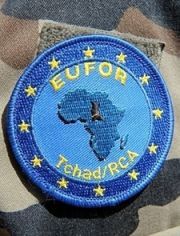Darfur mission, a test for Europe’s capacity to act in Africa conflicts
March 4, 2008 (PARIS) — Even before its troops got lost and came under fire this week in Sudan, Europe’s mission to protect some half-million uprooted people on the borders of conflict-torn Darfur had suffered an inauspicious start.

Some African leaders were suspicious if not downright hostile to the idea of Europeans policing their backyard. Sudan, in particular, has long resisted international involvement in efforts to bring safety and peace to the people of Darfur, where fighting has killed more than 200,000 people and created 2.5 million refugees since 2003.
It’s too early to tell whether contributing European nations are prepared to accept large numbers of casualties among their troops or an extended campaign in the region, as some experts warn. France, which is contributing the bulk of the force, has over the years grown used to seeing its forces sustain casualties in Africa. But other countries may not be so tolerant of troop losses or a long-term commitment.
Europe’s military capabilities — in decline since the Cold War’s end and already stretched by Afghanistan and Iraq — struggled to meet the call for contributions to the force.
Shortages of helicopters, vital for quickly flying peacekeepers over hostile terrain, contributed to months of delay, as did questions over how the European Union would pay for it all. Initial hopes the deployment would start last November proved wildly overoptimistic.
Now that European boots are finally hitting African soil, the shooting Monday in Sudan of two French peacekeepers — wounding one and leaving the other missing — has shown the force could be headed for a tough time.
The French special forces troops in a jeep crossed inadvertently from Chad into Sudan, where they were fired upon at close range even after they identified themselves, said French Defense Minister Herve Morin. Other French troops later returned to the area to try to find the missing soldier; they were also fired on and fired back, Morin said.
In the border zones where eastern Chad, the northern corner of Central African Republic and Sudan’s Darfur region meet, the European force, known as EUFOR, will be operating amid rebellions and rivalries, conflict and geopolitical intrigue. They will be trying to provide security for some half-million uprooted people forced to take shelter in more than 130 refugee camps, villages and makeshift sites, over an area larger than Britain.
(AP)
